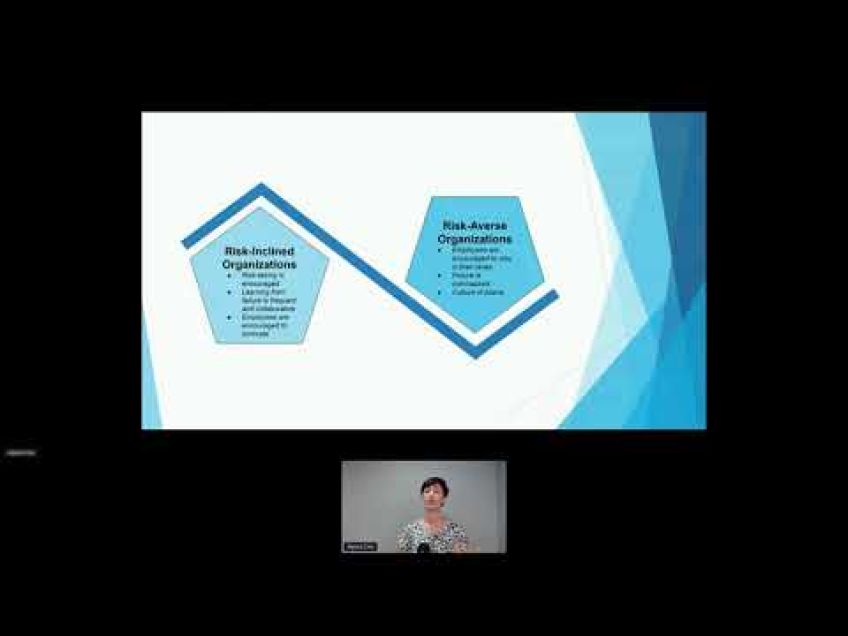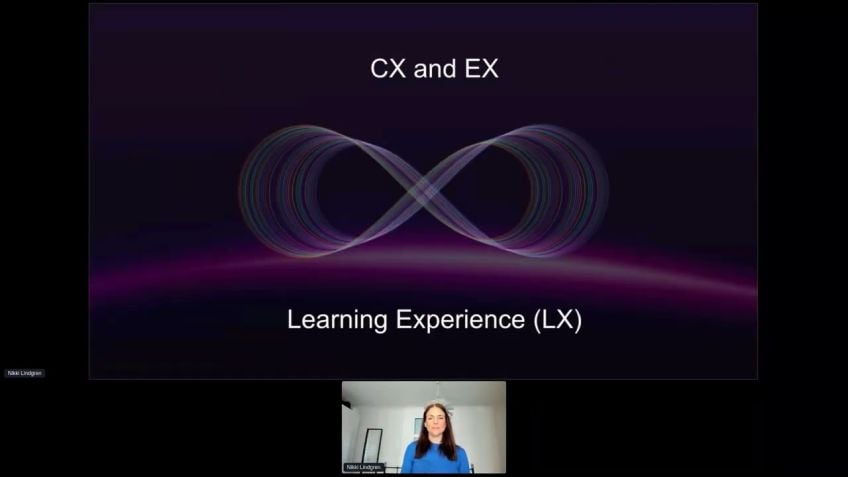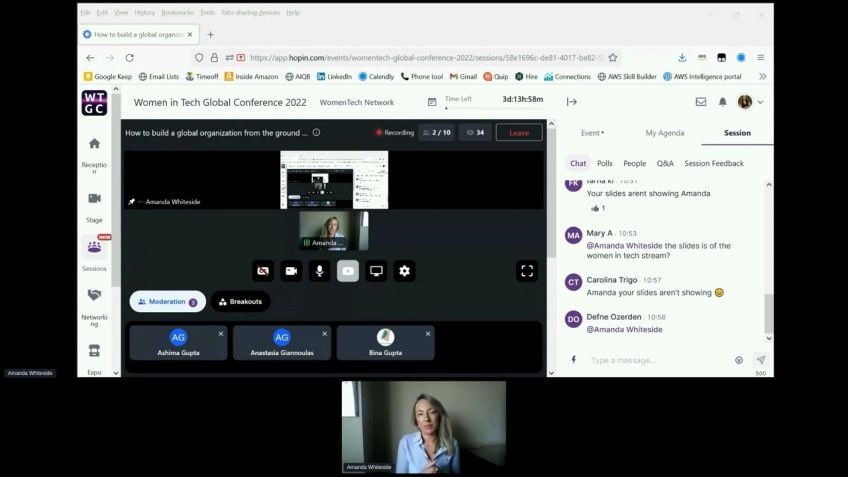Managing Meetings Effectively for Better Balance
Ramya Prabhakar
Principal Product ManagerMastering the Art of Effective Meeting Management
Hello everyone! It brings me joy to share with you a topic that is close to my heart and has occupied much of my attention and effort in the past year: managing meetings effectively for a balanced, productive life. This necessity was not lost on me as I repeatedly found myself exhausted and overwhelmed post-meetings. Thankfully, after sharing experiences with colleagues and reading extensively, I discovered that the problem was far from unique but undoubtedly solvable.
Shining A Light on Meeting Stats
Did you know that an average day witnesses around 11 million meetings? It’s not just the sheer number but the startling fact that only 29% of them are productive that calls for attention. Besides costing billions to companies, improperly managed meetings hamper productivity and lead to employee stress and burnout. The pressing question, therefore, is not whether to replace meetings with emails but how to make the existing ones more fruitful.
A Closer Look at Meeting Types
Let’s not disregard that meetings serve to both, push information across as well as pull feedback from participants. Awareness about updates, status changes, team's sentiments, possible fears, and more can be gleaned. Hence, not all meetings can be replaced, they require suitable frameworks to run smoothly and serve their respective purposes.
Getting the Maximum Out of Meetings
I propose a working framework, based on careful observation and personal success, to enhance meetings' effectiveness. This framework can be broken down into meetings' lifecycle stages: before, during, and after, as detailed below.
Before the Meeting
- Agenda: Provide a well-defined agenda well in time, which includes the meeting topic and duration. This allows participants to decide their relevance and participation method.
- Choose the Audience: Understand who needs to be included based on their potential input and their role during the meeting, such as decision-makers or contributors.
- Preparation: Share background reading or pertinent details with the attendees so they can come adequately informed.
During the Meeting
- Facilitation: Stick to the planned agenda and ensure all participants contribute. Be mindful of the fact that nonverbal cues make up the majority (93%) of communication.
- Maintain Focus: Deal with any unexpected tangents in the discussion by keeping the bigger agenda in mind.
After the Meeting
- Follow-up: Summarize the main points and ensure the right people receive them for follow-up, driving accountability within the organization.
This cycle needs to be repeated for every meeting to guarantee productive outcomes.
Main Takeaways
Try implementing these techniques by first identifying meetings that can be substituted with emails. For the remaining crucial ones, apply the proposed framework of preparation, facilitation, and follow-up. But don't stress too much: Start with small steps and incorporate the learnings iteratively. Remember, the goal is to make a positive impact, one meeting at a time.
Your feedback is invaluable to me and will aid me in refining these suggestions further. I believe that together we can trigger a ripple effect, amplifying the benefits of efficient meetings and transforming work cultures everywhere. Cheers to more balanced, productive days!
Video Transcription
Hello, everybody. I'm glad to be here with all of you in this session. I will be sharing tips on managing meetings effectively to maintain better balance in our lives. Before I share some staggering stats on meetings. Let me first share why this topic is close to my heart.I spent quite a lot of time in meetings last year and looking back, I had fewer instances where I felt energized after the meeting where I felt accomplished. The dominant feeling was that of confusion and overwhelm that made me wonder if it was just me and my meetings is the solution actually to say no to meetings. But as I spoke to more colleagues, read more books and even had a coach who helped me navigate through this. I realized that the problem is pretty pervasive and that's why I'm here to share some of my lessons that I learned the hard way. But if you look at the stats, right, surveys indicate that there are about 11 million meetings every day. The issue is not really in the number of meetings, but the survey also indicates that majority of them are not productive. 71% of them. It could very well be that we are ending up meeting more times just because we're not defective. The first time around additionally, poorly conducted meetings over time, not only cost billions to companies, but they also affect productivity, they cause stress and burnout to employees.
So I might ask then why? Really neat. Right. Can we in this day and age of communication, not do with just emails and other forms of messaging? Well, maybe there are a few meetings that actually can be replaced with emails but not all of them, right? What's important to note is there are different types of meetings and in any meeting, we typically want to not just push information in the form of status updates, news, our changes and such, but we also want to pull information, we want to know uh teens temperature, what they feel about an update.
We also want to understand if there are any fears, rumors basically to get a better read of the room. Well, that means that, you know, not all meetings are replaceable, maybe a few of them are. So the really uh key thing to note here is we do need frameworks to, to run meetings effectively. There are clear benefits of what meetings um can offer in an organization. So let's dive in and understand the framework that has worked well uh in many organizations. And also, um for me personally, I'm trying to put this to practice in uh the meetings that I am part of. There are three phases in my mind. One is uh what happens before the meeting, the amount of preparation that has to go in, then what happens during the meeting, how it's facilitated and what happens after. So the the framework actually divides it into three parts and let's dive into each other in the preparation part.
It's important to send out an agenda ahead of time. It shows a level of preparedness, it shows uh the audience what they can expect in terms of uh uh the meeting duration and such and also what, what is the topic? And they can decide if it is relevant to them or not. It, it gives them a little bit of control on how when and how to participate. Second is the audience themselves, right? They have to be carefully chosen. Do they really need to be in the meeting? Are they going to add more value and such and choose the audience? Not too many, not too few, but right amount depending on the agenda. And then the audience also needs to be informed of what is their role in the meeting? For example, are they decision makers? Are they going to be um decisions that need to be communicated? Or it could even be things like, do they need to contribute and actually drive any action item that emerges out of the meeting? So with those expectations that they come in, there will be a better understanding of who's doing what after the meeting. Also, if there's any background reading or detail that has to be shared beforehand, it helps to share that so they can all come and prepare it. Then what happens during? Right? It's really important how the meeting itself is facilitated. Things to remember here are sticking to the plan and keeping a time check to make sure that all of the preparation is actually being portrayed.
It's also important to see that we encourage every participant in the meeting to contribute. There is um a better uh you know, um follow up that will happen if all of them can actually actively contribute to the discussion. Another thing to note is um there's a popular saying that says only 7% of the information is communicated as part of um the the information shared verbally, 93% is actually contextual or nonverbal cues that have to be uh observed during the meeting. So a facilitator, some of these skills actually come naturally to people who can do a really good job facilitating. It's also important to choose the right facilitator who's capable of reading the room during the meeting so that they get the right feedback on what's happening in the meeting.
And also they need to be able to expect the unexpected sometimes meeting conversations go off tangent. They have to keep that in mind, keep the bigger agenda in mind and facilitate uh to make sure that the audience participates and stays on track. All of these things have to happen uh during the meeting for it to be effective. Now, the last part is what happens after, right, following up the conversation by capturing key highlights and sharing it to the rights of people for follow up is super important. It helps drive accountability within the organization. It also helps um with folks who couldn't make it to the meeting, it could even be recorded if not really a written document. So they don't feel they missed anything major given these three phases. Um It's basically rinse repeat, right?
For every meeting, the cycle repeats uh for follow up meetings that brings me to the three key takeaways. One is take a look at your calendars and evaluate if meetings uh exist that could have been emails, please replace them. And the for the ones that really have to be meetings, it's important to use the framework to prepare, facilitate and follow up. So you make your days really productive. And most importantly, uh I realize that all these techniques uh cannot be applied to all the meetings on day.
One take small steps, incorporate your learnings iterative, which is what I plan to do. So we can uh benefit from these frameworks. One meeting at a time. Do you have some resources that I use to help uh organize my thoughts on this topic? I'll be happy to share this uh later. I'm also looking for feedback uh on how this message resonates with you and your organization. So uh please let me know how this goes. I hope uh together we can create a ripple effect in uh this space one meeting at a time so that we can all make the most of artists. Thank you.





